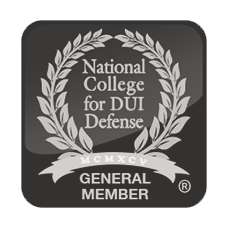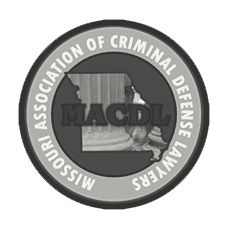St Louis Federal Criminal Defense Attorney
If you have any questions call me at 314-561-9690 for a free consultation
IF YOU’VE BEEN ACCUSED OF A FEDERAL CRIME IN MISSOURI
7 THINGS YOU NEED TO KNOW
JCS Law is a top tier Federal Criminal Defense firm located in St. Louis, Missouri. St. Louis attorney John Schleiffarth practices extensively in the Eastern District of Missouri Federal Court. We fight federal charges for drugs, guns, sex crimes, child pornography, stealing, embezzlement, identity theft and federal conspiracy charges. John Schleiffarth has been recognized repeatedly in the field of criminal defense law, including:
Super Lawyers: Rising Star 2015-2018
St. Louis Magazine: Finalist for “Lawyer Of The Year” 2017
If you would like to schedule a free review of your case, call us now at 314-561-9690. You may also contact us through our website text message option or our online contact form.
DO I NEED TO HIRE A LAWYER TO HELP ME WITH MY FEDERAL CRIMINAL CHARGE?
Criminal charges in federal court are very serious. If you or someone close to you has been accused of a crime, you could be facing many years in prison. Federal conspiracy charges are very common. They may not be fair, and they may feel downright wrong. If you are charged as part of a conspiracy, you will likely be held responsible for the actions of other persons who were part of the same conspiracy charge even if you did not interact with them directly. For example, if you are charged with conspiracy to possess with intent to distribute fentanyl, methamphetamine, cocaine, marijuana or other drugs, the quantity of drugs the government attributes to you is normally based on the weight of drugs attributed to the group involvement, not just you directly. Many firms (including our firm) offer free initial case reviews. You should at the very least speak to a lawyer to make sure you understand your rights, the potential penalties you face and the defenses that may be available to you. Even if you decide against hiring a private lawyer, you should know the options available to you through having a skilled and dedicated defense team on your side.
WHAT ARES SOME OF THE POTENTIAL DEFENSES TO A FEDERAL CRIMINAL CHARGE IN THE EASTERN DISTRICT OF MISSOURI?
When you walk into our office, one of the first things we will do is walk through with you what happened. We want to understand the facts behind the government’s investigation. We want to know if the search warrants they issued were valid. We want to know if there was probable cause to search if there was a search with no warrant. We will also want to now about any conversation you may have had with law enforcement including DEA, FBI, or Homeland Security Agents. We are beginning to plan your defense. A few examples of defenses include:
(1) Illegal Search. The government may have searched you or your property without a warrant or probable cause to do so. A federal agent must follow the law when investigating crimes. If a federal agent or a police officer violates your rights in the process of an investigation, we may be able to suppress the evidence that was illegally obtained. That means it could not be used against you in the charges you face. A successful motion to suppress evidence may result in complete dismissal of your charges.
(2) Pre-trial Motions. As part of your defense, we can file pre-trial motions to seek dismissal of the charges against you if there are problems with the governments evidence. Examples of pretrial motions we can file under Rule 12 (b)(3)
(A) improper venue
(B) preindictment delay
(C) a violation of the constitutional right to a speedy trial
(D) selective or vindictive prosecution
(E) error in the grand-jury proceeding or preliminary hearing
(F) a defect in the information or indictment, including
– joining two or more offenses in the same count (duplicity)
– charging the same offense in more than one count (duplicity)
– lack of specificity
– improper joinder
(3) Elements of Crime Not Present. Every criminal charge has specific elements of the crime which must be present in order for you to be convicted. If the government has some evidence that points to a crime, but lacks each and every element necessary to prove a case against you, your case may be dismissed. Just because a crime is charged does not mean that the government’s lawyers can make their case in court.
(4) Dragnet Prosecution. Sometimes the government indicts a large number of people it believes were involved in a very large conspiracy. If you were not part of the conspiracy, or your involvement was very limited, you may be able to differentiate yourself from the group. Your charges could be reduced or dropped as additional evidence is provided by your defense lawyer.
CAN I LOOK UP MY FEDERAL CRIMINAL CHARGES ONLINE?
Federal criminal charges are available to view online through a system called PACER. You need a paid account to access case details, and only your attorney will be able to access all of the case information. Sometimes when a case is initially charged, the indictment is sealed- meaning that access is restricted. You may have charges pending even if those charges are not displayed on PACER.
SHOULD I GO TO COURT ON MY OWN AND PLEAD GUILTY?
If you plead guilty to a federal charge without negotiating a plea agreement, you will likely face much harsher penalties than if you are represented by a skilled federal criminal defense attorney. Do not make deals or enter into agreements without an attorney representing you. Even if there is significant evidence against you, there may be circumstances which your federal criminal defense attorney can use to your advantage and substantially reduce your sentence.
WHAT CAN I EXPECT ONCE MY CHARGES HAVE BEEN FILED?
First, remember that we offer a free initial consultation. At that first meeting, we will gather information about your case but also advise you very specifically on what you to expect throughout the process of fighting your case. If you choose to hire us, you can expect your case to proceed like this:
(1) INITIAL APPEARANCE: YOUR FIRST COURT APPEARANCE
elony federal charges begin in court with your “Initial Appearance”. You will be brought to court, or your lawyer will arrange for your appearance before a magistrate judge. The magistrate judge will oversee the initial proceedings in your case. The judge will inform you of your rights, including your right to remain silent and your right to have a lawyer. If you cannot afford to hire a private lawyer, the court will appoint a lawyer for you. Depending on the seriousness of your charges, you may be granted bail at your initial appearance, or the government my ask for a Detention Hearing. If the government asks for a Detention Hearing, hearing will be held promptly, normally within three days, to determine whether you will be granted bail. In some cases, your federal criminal defense lawyer can arrange an agreement with the government to recommend your release on bail in advance of the Initial Appearance.
(2) BAIL
Your bail hearing is held in accordance with the Bail Reform Act, which was created by congress under 18 U.S.C. § 3141. The bail hearing is called a Detention Hearing in federal court. At your Detention Hearing the government’s lawyers must put on evidence to convince the judge that you are a flight risk or a danger to the community, and that there are no conditions of bail that would reasonably assure the safety of the community and your appearance at future court dates. Your federal criminal defense attorney will produce evidence and argue to persuade the judge that you should be released. If you are charged with a serious or dangerous crime, your lawyer may offer to the judge special conditions of release that the judge will find acceptable to reasonably assure the safety of the community and your appearance in court. Congress has also created a presumption of detention for certain serious crimes. These crimes include possession of child pornography, sex crimes involving children, drug trafficking, and other crimes for which the maximum term of imprisonment is more than 10 years pursuant to 18 U.S.C. § 3142 (f)(1),(2). In “presumption” cases, the government’s lawyers will seek to prove by clear and convincing evidence that no conditions of bail will be enough to protect the public and assure your return to the court. The catch is that the judge will begin with a presumption that the government is right. Your federal criminal defense lawyer will provide evidence and make arguments to overcome the “presumption”, and demonstrate to the judge that you meet the criteria for bail. At JCS Law, we prevail often against difficult odds to get bail for our clients in presumption cases.
(3) ARRAIGNMENT
Arraignment is your next formal appearance before the court. At your arraignment hearing the judge will read to you the charges filed against you, and make sure you understand them. If you are in custody, the arraignment must take place within 10 days of your initial appearance. If you are on bond, your arraignment must take place within 20 days of your initial appearance. Many judges will take care of the arraignment together with an earlier proceeding for convenience.
If you have been charged with an Information, you have the right to a preliminary hearing where the government must show probable cause exists to charge you with a crime. Most federal cases are charged through a grand jury indictment. An indictment is a formal charging document that contains the charges you with which you have been accused. Evidence is presented to the grand jury by the U.S. Attorney’s office in secret. If the grand jury determines there is enough evidence for an indictment, the charges will be issued and there will be no preliminary hearing.
(4) PRETRIAL MOTIONS
Pre-trial Motions are filed most commonly to suppress evidence or to prevent the government from using certain evidence at trial. For example, if the government recovered drugs from your car, but did not have probable cause to search your car in the first place, your attorney may file a pre-trial Motion to Suppress Evidence. Your attorney will argue to the judge that the evidence in your case was obtained illegally, and that the government should not be able to use it against you in a trial.
Effective use of pre-trial motions can lead to a dismissal of the charges against you. They can also be used to leverage a better plea agreement. Depending on the facts in your case, your attorney will carefully determine whether pre-trial motions should be filed, or if they should be waived based on an agreement you make.
(5) PLEA
A plea agreement is a written agreement where you and the government agree to certain conditions on which you enter a guilty plea to all or some of the charges you were charged with. It includes specific conditions and concessions made by both sides. If you choose to enter a guilty plea, you should ensure that your plea agreement is in writing in order to protect your rights.
A plea agreement is a contract between you and the government. You may also think of it as a settlement agreement that can be mutually beneficial. You can enter a plea “open” to the judge without reaching an agreement with the government. You may also enter an “Alford Plea” which is similar to a no contest plea. In an Alford Plea, you tell the judge that if your case went to trial, you think the evidence would be enough to convict you, but you do not admit guilt. You are saying that you want the benefit of the plea agreement, but you are not willing to say you did the crime. An Alford Plea is often used to protect you from the potential civil liability that a guilty plea could cause if it is later used against you in a civil lawsuit/ You may also choose to reject any kind of plea offer and proceed with a trial.
(6) TRIAL
Some cases ultimately need to be decided at trial. The government has the burden of proof at trial. They must prove beyond a reasonable doubt that the defendant committed each element of every offense charged.
Federal jury trials in a criminal case often last between 2 and 10 days. During a trial your lawyer will argue your defense, but the proof responsibility still rests with the government. You have the right to confront the witnesses against you, cross examine the government’s witnesses, subpoena your own witnesses, and put on evidence of your own.
A jury of 12 citizens must all agree in order to find you guilty. If the jury cannot reach a unanimous agreement, a mistrial is declared, and a new trial is ordered. Only a “Not Guilty” verdict will end the case. All 12 jurors must agree to the not guilty verdict
(7) SENTENCING
If you are found guilty at trial, or if you enter a guilty plea, a Sentencing Hearing will be held approximately three months later. Before a Sentencing Hearing, a probation officer interviews the defendant. The pre-sentence interview or “PSI” is used to prepare a presentence report or “PSR”. The pre-sentence report assists the judge at sentencing by providing information about the defendant’s background, the charges themselves and by making a preliminary calculation of the federal sentencing guidelines.
If anything in the PSR is inaccurate, your lawyer may file objections with the court. The judge will make a final determination at the sentencing hearing. At the sentencing hearing the judge will listen to both the government and your federal criminal defense attorney make arguments as to what the sentence should be. The federal sentencing guidelines are an advisory guide, but a judge may depart from the guidelines. Depending on the charges, a judge may sentence the defendant to a term of probation, or to a term of years in federal prison. Fines and restitution may be ordered as well. Your federal criminal defense attorney may persuade the judge to grant a sentence which is more lenient than the guidelines created by congress. You can also benefit from early release programs, receive good time credits to shorten you sentence or get a sentence reduction through completion of the Residential Drug Abuse Treatment Program (RDAP). If you have questions about penalties in a federal criminal case, call on of our experienced attorneys at JCS Law for a free consultation.
If you are facing federal criminal charges, you need to meet with a skilled federal criminal defense attorney as soon as possible. Contact us today for immediate help.
I WOULD LIKE A FREE CONSULTATION WITH A ST. LOUIS DWI ATTORNEY. WHO SHOULD I CALL?
Fill out our contact form to the right and one of our attorneys will contact you as soon as possible to discuss the details of your case. If you would like to speak with a St. Louis DWI lawyer right away, call 314-561-9690. We are on call 24/7 to answer questions about DWI cases in St. Louis and throughout eastern Missouri.
Featured In:






Award winning
law firm
120 S Central Ave #1550
St. Louis MO 63105









